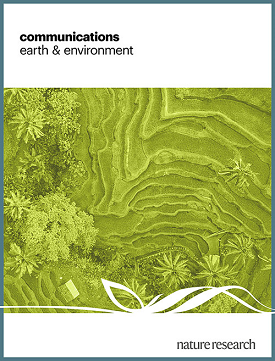War and pandemic do not jeopardize Germans’ willingness to support climate measures
IF 8.1
1区 地球科学
Q1 ENVIRONMENTAL SCIENCES
引用次数: 0
Abstract
How do the impacts of acute crises influence citizens’ willingness to support different types of climate measures? An acute crisis can be understood either as an impediment or as an opportunity for climate change mitigation. In the first perspective, crisis impacts would create negative spill-overs and dampen citizens’ willingness to support climate action, while in the second perspective, the opposite would occur. Based on a survey experiment fielded in Germany in 2022 (n = 5438), we find that the economic implications of the Russo-Ukrainian War do not decrease behavioral willingness, while restrictions of civil liberties to combat the COVID-19 pandemic lead to higher climate support, underpinning the crisis-as-opportunity perspective. Willingness to support climate measures is strongest among (1) those most concerned about climate change, and (2) those who trust the government. We conclude that individuals do not wish climate change mitigation to be deprioritized on the back of other crises. The economic implications of the Russo-Ukrainian War and the impact of lockdown restrictions during the COVID-19 pandemic do not negatively affect public support for climate measures and suggest a crisis-as-opportunity perspective, according to a 2022 survey experiment with 5438 German residents.

战争和流行病不会影响德国人支持气候措施的意愿
严重危机的影响如何影响公民支持不同类型气候措施的意愿?严重危机既可以被理解为减缓气候变化的障碍,也可以被理解为减缓气候变化的机遇。从第一种角度来看,危机的影响会产生负面溢出效应,削弱公民支持气候行动的意愿,而从第二种角度来看,情况则恰恰相反。基于 2022 年在德国进行的一项调查实验(n = 5438),我们发现俄乌战争的经济影响并不会降低行为意愿,而限制公民自由以对抗 COVID-19 大流行则会导致更高的气候支持率,从而支持危机即机会的观点。支持气候措施的意愿在(1)最关注气候变化的人群和(2)信任政府的人群中最强。我们的结论是,个人不希望减缓气候变化的措施因其他危机而被置于次要地位。根据 2022 年对 5438 名德国居民进行的调查实验,俄乌战争的经济影响和 COVID-19 大流行期间封锁限制的影响不会对公众对气候措施的支持产生负面影响,并表明了危机即机会的观点。
本文章由计算机程序翻译,如有差异,请以英文原文为准。
求助全文
约1分钟内获得全文
求助全文
来源期刊

Communications Earth & Environment
Earth and Planetary Sciences-General Earth and Planetary Sciences
CiteScore
8.60
自引率
2.50%
发文量
269
审稿时长
26 weeks
期刊介绍:
Communications Earth & Environment is an open access journal from Nature Portfolio publishing high-quality research, reviews and commentary in all areas of the Earth, environmental and planetary sciences. Research papers published by the journal represent significant advances that bring new insight to a specialized area in Earth science, planetary science or environmental science.
Communications Earth & Environment has a 2-year impact factor of 7.9 (2022 Journal Citation Reports®). Articles published in the journal in 2022 were downloaded 1,412,858 times. Median time from submission to the first editorial decision is 8 days.
 求助内容:
求助内容: 应助结果提醒方式:
应助结果提醒方式:


